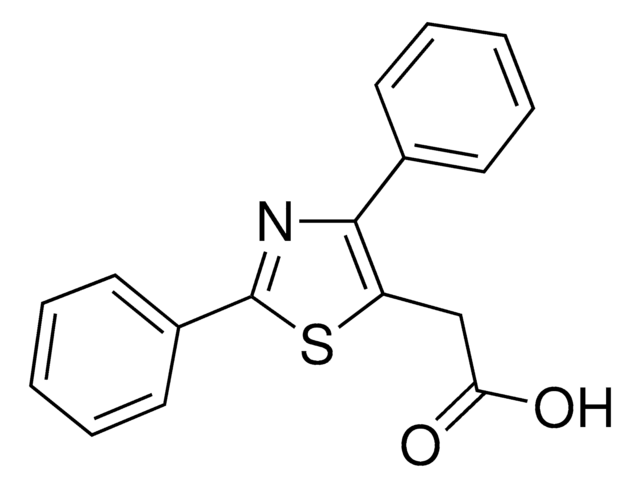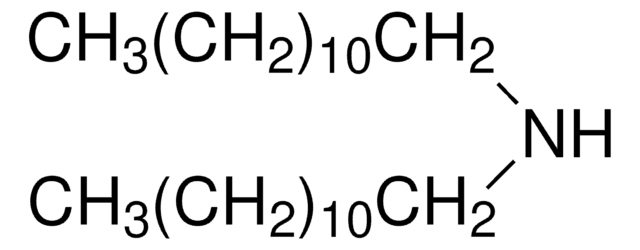757233
2,4-Bis[4-(N,N-diphenylamino)-2,6-dihydroxyphenyl]squaraine
98%
About This Item
Productos recomendados
assay
98%
form
powder
mp
328-333 °C
λmax
720 nm
orbital energy
HOMO 5.3 eV
LUMO 3.8 eV
OPV device performance
ITO/MoO3/DP-SQ/C60/PTCBI/Ag
SMILES string
Oc1cc(cc(O)c1[C]2[C+]([O-])[C]([C+]2[O-])c3c(O)cc(cc3O)N(c4ccccc4)c5ccccc5)N(c6ccccc6)c7ccccc7
InChI
1S/C40H28N2O6/c43-31-21-29(41(25-13-5-1-6-14-25)26-15-7-2-8-16-26)22-32(44)35(31)37-39(47)38(40(37)48)36-33(45)23-30(24-34(36)46)42(27-17-9-3-10-18-27)28-19-11-4-12-20-28/h1-24,43-46H
InChI key
FXAALAVLRJSKEQ-UHFFFAOYSA-N
Categorías relacionadas
General description
Application
signalword
Warning
hcodes
Hazard Classifications
Eye Irrit. 2 - Skin Irrit. 2 - STOT SE 3
target_organs
Respiratory system
Storage Class
11 - Combustible Solids
wgk_germany
WGK 3
flash_point_f
Not applicable
flash_point_c
Not applicable
Certificados de análisis (COA)
Busque Certificados de análisis (COA) introduciendo el número de lote del producto. Los números de lote se encuentran en la etiqueta del producto después de las palabras «Lot» o «Batch»
¿Ya tiene este producto?
Encuentre la documentación para los productos que ha comprado recientemente en la Biblioteca de documentos.
Artículos
Solution-processed organic photovoltaic devices (OPVs) have emerged as a promising clean energy generating technology due to their ease of fabrication, potential to enable low-cost manufacturing via printing or coating techniques, and ability to be incorporated onto light weight, flexible substrates.
Solution-processed organic photovoltaic devices (OPVs) have emerged as a promising clean energy generating technology due to their ease of fabrication, potential to enable low-cost manufacturing via printing or coating techniques, and ability to be incorporated onto light weight, flexible substrates.
Solution-processed organic photovoltaic devices (OPVs) have emerged as a promising clean energy generating technology due to their ease of fabrication, potential to enable low-cost manufacturing via printing or coating techniques, and ability to be incorporated onto light weight, flexible substrates.
Solution-processed organic photovoltaic devices (OPVs) have emerged as a promising clean energy generating technology due to their ease of fabrication, potential to enable low-cost manufacturing via printing or coating techniques, and ability to be incorporated onto light weight, flexible substrates.
Nuestro equipo de científicos tiene experiencia en todas las áreas de investigación: Ciencias de la vida, Ciencia de los materiales, Síntesis química, Cromatografía, Analítica y muchas otras.
Póngase en contacto con el Servicio técnico![1,3-Bis[4-(dimethylamino)phenyl]-2,4-dihydroxycyclobutenediylium dihydroxide, bis(inner salt) Dye content 90 %](/deepweb/assets/sigmaaldrich/product/structures/301/519/500149b3-198c-44cf-b952-7e91f54fc48e/640/500149b3-198c-44cf-b952-7e91f54fc48e.png)









